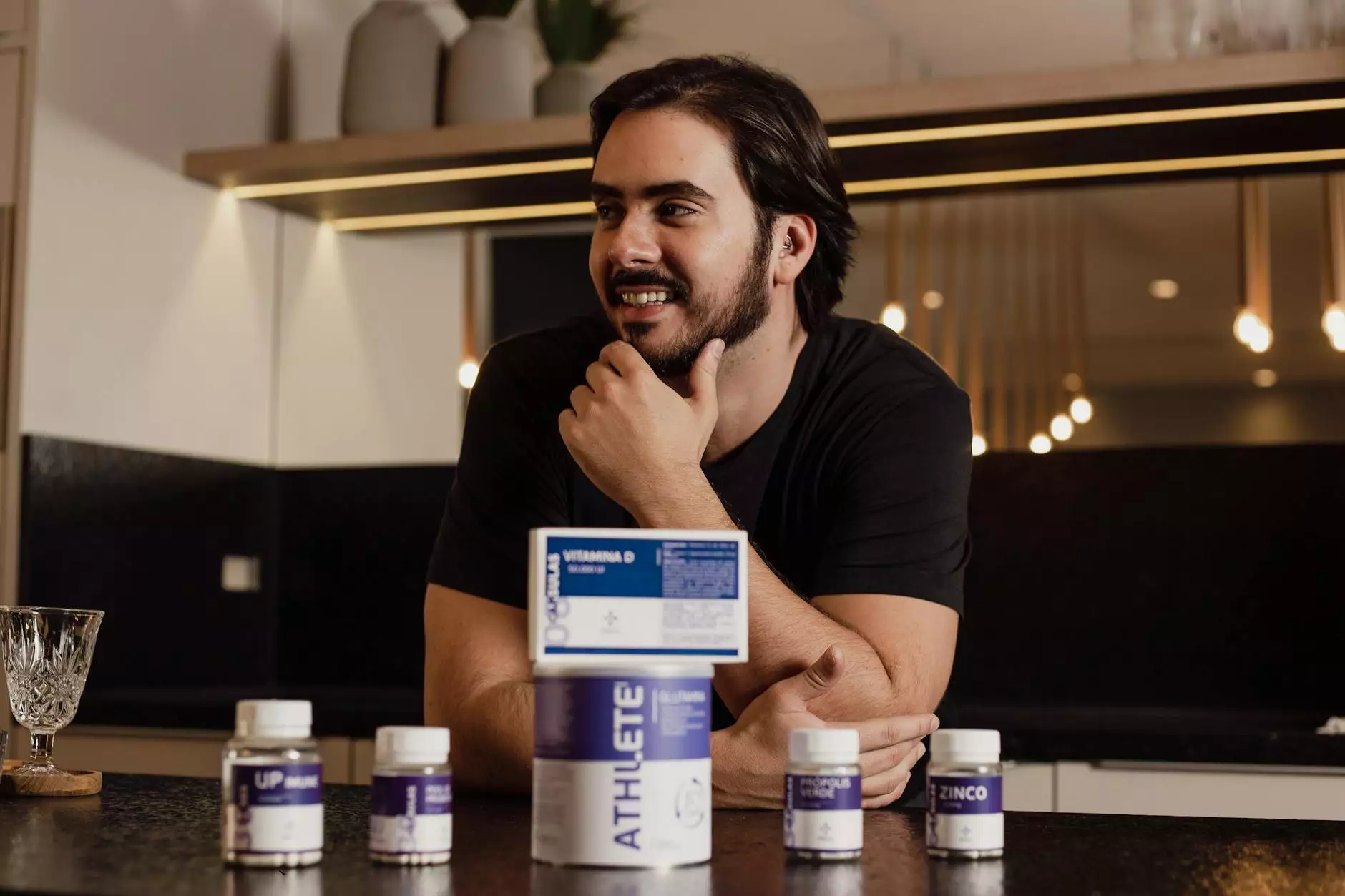Understanding Horse Anti-Inflammatory Supplements for Optimal Equine Health

The world of equine care has evolved dramatically over the years. Among the most important advancements in the field is the development of horse anti-inflammatory supplements. These supplements play a crucial role in maintaining the health and performance of horses, particularly for those engaged in competitive events. In this comprehensive article, we will delve into the various aspects of horse anti-inflammatory supplements, discussing their benefits, types, applications, and considerations for horse owners.
The Importance of Anti-Inflammatory Supplements
Inflammation is a natural response of the body to injury or infection. However, in horses, inflammation can be detrimental, particularly for those involved in rigorous physical activity. Chronic inflammation can lead to a plethora of health issues, including:
- Joint pain and stiffness
- Mild to severe lameness
- Decreased performance and mobility
- Discomfort or pain during exercise
Integrating horse anti-inflammatory supplements into a horse's diet can help mitigate these issues, ensuring the animal remains healthy, comfortable, and competitive.
Types of Horse Anti-Inflammatory Supplements
There is a wide variety of anti-inflammatory supplements available in the market. They can be categorized into several types based on their active ingredients:
1. Non-steroidal Anti-inflammatory Drugs (NSAIDs)
NSAIDs are commonly used for pain relief and reducing inflammation in horses. Their effectiveness is well documented, and they are often prescribed by veterinarians. Some of the most popular NSAIDs include:
- Phenylbutazone
- Flunixin meglumine
- Carprofen
These medications can be administered orally or via injection, depending on the severity of the condition and the advice of a veterinarian.
2. Natural Anti-inflammatory Supplements
Increasingly, horse owners are turning to natural supplements derived from herbs and other plant materials. These supplements are favored for their gentler effects and potential lack of side effects. Popular natural anti-inflammatory ingredients include:
- Turmeric (curcumin)
- Devil's Claw
- Willow Bark
- Ginger
Natural supplements are often marketed as alternatives to traditional medications and can be beneficial in managing mild to moderate inflammation.
3. Joint Support Formulas
Joint health is a major concern in equine sport, and many supplements are designed specifically for this purpose. These formulas often contain a combination of:
- Glucosamine
- Chondroitin sulfate
- Hyaluronic acid
- MSM (Methylsulfonylmethane)
These ingredients work synergistically to support joint health, reduce inflammation, and enhance mobility.
Benefits of Using Horse Anti-Inflammatory Supplements
The incorporation of anti-inflammatory supplements into a horse's regimen offers a multitude of advantages:
1. Enhanced Performance
For competitive horses, optimal performance is paramount. Horse anti-inflammatory supplements can help reduce pain and stiffness, allowing horses to perform at their best, even under demanding conditions.
2. Improved Recovery Times
After a rigorous exercise session or competition, horses may experience inflammation and soreness. Anti-inflammatory supplements can expedite recovery, enabling horses to return to training or competition more quickly.
3. Holistic Health Support
Many anti-inflammatory supplements also have additional health benefits, such as improving digestive health and boosting the immune system, contributing to overall equine well-being.
4. Reduced Reliance on Pharmaceuticals
By incorporating natural horse anti-inflammatory supplements, horse owners may reduce the need for prescription medications, which can have unwanted side effects over time.
Considerations Before Administering Supplements
While anti-inflammatory supplements can be beneficial, it is crucial for horse owners to consider several factors before introducing them into their horse's diet:
1. Consultation with a Veterinarian
Always consult a veterinarian prior to introducing any new supplement. A professional can provide personalized recommendations based on the horse's health status, physical activity level, and specific needs.
2. Quality of Supplements
Not all supplements are created equal. Horse owners should seek reputable brands known for high-quality ingredients and manufacturing processes. Always check for third-party testing and positive customer reviews.
3. Monitoring and Adjustments
Once a supplement is introduced, it's essential to monitor the horse for any changes in behavior, performance, or health. Adjustments may be necessary based on the horse's responses.
How to Choose the Right Horse Anti-Inflammatory Supplement
Selecting the right supplement for a horse involves understanding specific needs, ingredients, and desired outcomes. Follow these guidelines to make an informed choice:
1. Identify the Problem
If a horse displays signs of pain or discomfort, it's essential to identify the source of the issue. Is it a joint problem, tendinitis, or general soreness? This identification will guide the selection of an appropriate supplement.
2. Evaluate Ingredients
Look for supplements with proven ingredients. Research their benefits and ensure they align with the horse’s needs. Each ingredient should serve a purpose in promoting health and reducing inflammation.
3. Assess Adjustability
Some supplements may require a loading dose followed by a maintenance dose. Read product guidelines carefully to understand how to adjust the dosage based on the horse’s requirements.
4. Cost vs. Benefit Analysis
Higher-priced supplements do not always guarantee better results. Conduct a cost-benefit analysis to determine if a particular product is worth the investment based on its effectiveness.
Integrating Horse Anti-Inflammatory Supplements into a Feeding Regimen
Integrating anti-inflammatory supplements into a horse's feeding regimen can be straightforward, but it requires attention to detail. Here are some practical steps:
1. Choose the Right Time
Administer supplements at a time that fits the horse's feeding schedule. Consistency is key for maximizing effectiveness.
2. Mix with Feed
Many supplements can be mixed with regular feed to mask the flavor and ensure the horse consumes the entire dosage. Always follow the manufacturer’s recommendations on how to mix and administer the supplements.
3. Monitor Consumption
Keep an eye on how well the horse is eating. If there's a significant change in appetite or behavior, consult a veterinarian.
Conclusion
In conclusion, horse anti-inflammatory supplements are an invaluable resource for maintaining the health and performance of horses. From alleviating pain and promoting recovery to supporting overall well-being, these supplements play a pivotal role in equine care. Whether opting for NSAIDs, natural alternatives, or specialized joint support formulas, horse owners should be informed and deliberate in their choices. By consulting with veterinarians and considering individual horse needs, you can ensure the best possible outcomes for your equine companions.
For more detailed information on high-quality horse anti-inflammatory supplements and related products, visit racehorsemedcare.com.
horse anti inflammatory supplements








